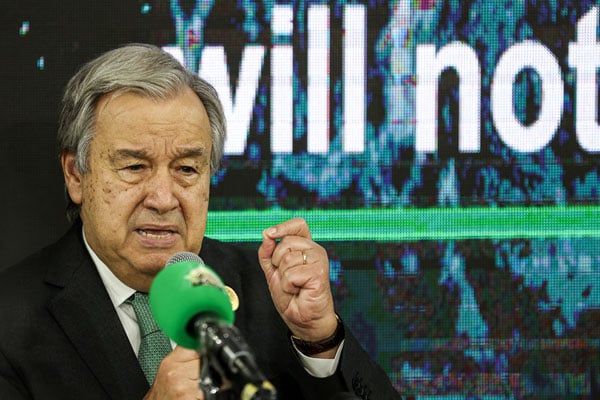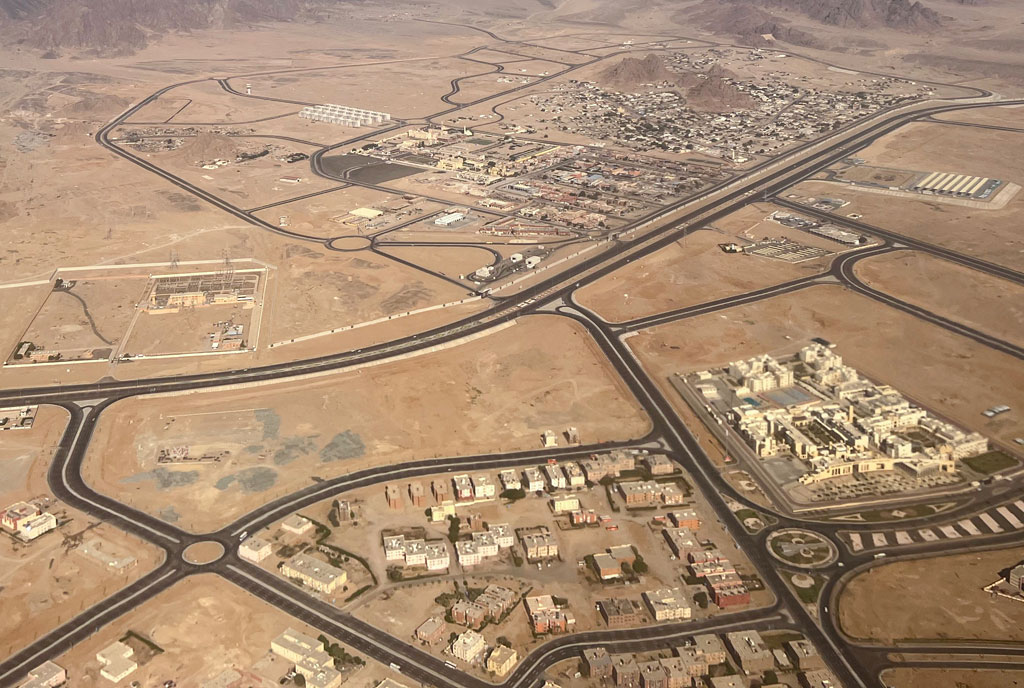Activists stage protest at COP27

Activists protest outside the UN Climate Conference (COP27) venue in Sharm el Sheikh, Egypt on November 9, 2022. PHOTOS/ GILLIAN NANTUME
SHARM EL SHEIKH. The loss and damage debate continues to take center stage at the UN Climate Conference (COP27), with activists vowing to hold protests every day, until the end of the Conference.
Loss and damage funding - for developing countries which have been adversely affected by the effects of climate change - was officially adopted in the COP27 agenda.
A number of developed nations gave financial pledges to support poor nations at risk from environmental damage. However, activists say the funds committed are too little to make any meaningful change.
It’s against this background that a number of activists on Wednesday held a demonstration outside the conference venue, despite the ban on such protests at the main conference center Egyptian. Protests are banned in Egypt. Instead, for COP27, an official designated protest area had been set up in the desert, far from the venue or in the Green Zone, which is the official activist area, a 25-minute walk from the venue. However, activists insist that they will continue protesting at the COP27 venue.
“I have mobilized young people to demand climate justice. Africa contributes less than four percent of global emissions yet we are suffering the effects of climate change. We came to COP27 with high expectations but unfortunately, after the first day where world leaders referenced the devastating effects of climate change on Africa, the important agenda to consider Africa as a continent of special needs and circumstances was dropped. Loss and damage financing has been pushed to 2024, and this is unacceptable,” says Loki Aben, a digital expert and climate activist from Nigeria.
In October, Nigeria experienced one of its most devastating floods in decades, which affected 34 out of its 36 states. Over 600 people lost their lives, according to officials statistics.

Aben adds, “We want young people at the discussion table because we have solutions to the climate crisis. We will be here protesting until the last day. We want meaningful youth engagement. World leaders have to listen to us and give us space at the table for the sake of intergenerational equity.”
A few developed counties have pledged to offer loss and damage funds. Yesterday, Scotland committed to a £2 million pledge. In September, Denmark committed DKK 100 million, to focus on areas in the Sahel region. On Monday, Germany committed to providing €170 million for a Global Shield Initiative, aimed at strengthening insurance and disaster protection finance, while Ireland committed €10 million to the same Initiative for 2023.
Austria committed €50 million to the Santiago Network, a UN scheme which provides technical support for countries facing damages from climate disasters. Belgium pledged €2.5 million as part of a €25 million package of climate related support for Mozambique from 2023-2028.
Some activists say the money does not count as loss and damage financing. Lidy Nakpil, a climate activist from the Philippines, says the funding given is inadequate.
“They (developed countries) make big announcements about what they will give. Yet they give more (money) to the use of fossil fuels than climate finance. We are disappointed that the issue of loss and damage is not a priority. They have avoided the question of financing. They are talking about insurance systems and other kinds of platforms that will not mean money out of their pockets. Those governments should be collecting from the corporations that are responsible for climate change and these should be financing the compensation. They should not collect the money from their poor people.”
Research suggests that by 2030, the combined climate-linked losses of 55 vulnerable countries could reach USD580 billion per year.





